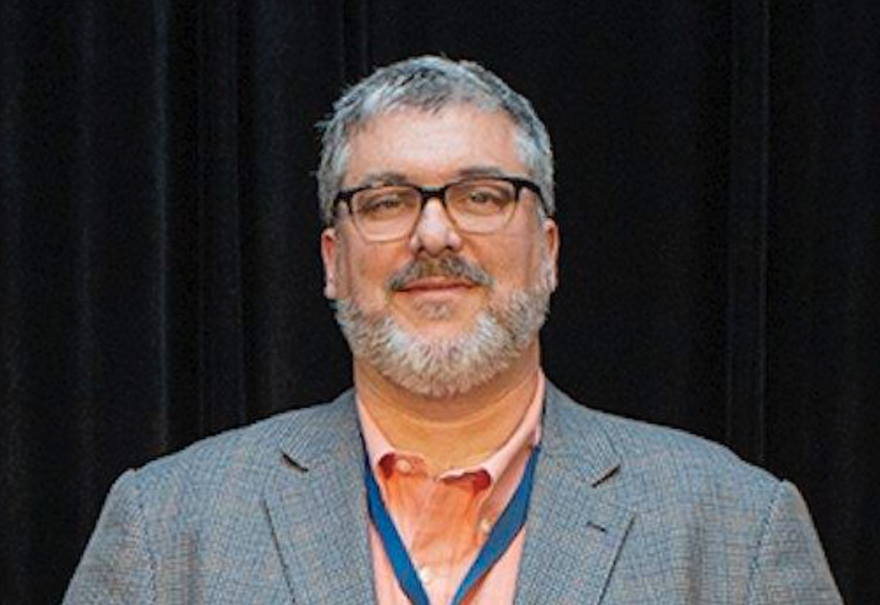If all you know about silent films is some crude, jumpy footage from the 1910s, you’re missing the big picture. So says Chad Hunter, the Mount Lebanon-based archivist and programmer who’s a co-founder of National Silent Movie Day.

The initiative includes screenings of silent films, most with live musical accompaniment, at three dozen venues from Los Angeles to New York City. It also features a full day of silent masterpieces on Turner Classic Movies — and the imprimatur of no less than filmmaker Martin Scorsese. On his TCM blog, Scorsese called the Sept. 29 inaugural event “a great initiative” and said of Hunter and his co-founders, “this is exactly the kind of activist spirit we need right now in the world of cinema.”
Hunter is former executive director of Dormont’s Hollywood Theater, and former director of the Rangos Giant Cinema at Carnegie Science Center. In January, he was named executive director of the Video Trust, a national advocacy and professional development group for film and video in schools and libraries.
He has always been interested in silent film — that is, pretty much any motion picture made before 1927, when the film industry began transitioning to pre-recorded synchronized sound. Though film aficionados cherish the silent era for everything from the sophisticated physical comedy of Charlie Chaplin and Buster Keaton to the artistic visions of Fritz Lang (“Metropolis”) and Sergei Eisenstein (“Battleship Potemkin”), the films themselves are little seen and widely underappreciated, Hunter said.
National Silent Movie Day grew out of his desire to get back into programming: In his Hollywood Theater days, he screened about 40 silent films with live musical accompaniment as part of a series called Silents, Please. He also wanted to revive the Pittsburgh Silent Film Society, which existed mostly as a Facebook group, he said.
He connected with Brandee B. Cox, of the Academy Archive (yes, part of the foundation that oversees the Academy Awards), and Steven K. Hill of the UCLA Library, both based in Los Angeles. “I mentioned this idea [for National Silent Movie Day] and we ran with it,” he said.
Hunter is especially pleased that most of the day’s events include live music, which was widely a feature of the “silent” era, when many theaters had in-house pianists or organists.
“I feel like it’s an art form of itself. Like that marriage of live music and film, it’s not something that a lot of people have experienced,” said Hunter. “It’s part the history of these films, and sort of what birthed what we know as film and television today.”
Participating venues include some of the country's most prestigious screening rooms. Lincoln City, Ore.’s Bijou Theatre screens the 1923 “The Hunchback of Notre Dame,” starring Lon Chaney. San Francisco’s Rialto Cinemas shows a program of restored Charlie Chaplin shorts from the 1910s. In Los Angeles, the American Cinematheque show Keaton’s “The General” (1926) and “Within Our Gates” (1920), by Oscar Micheaux, widely considered the first feature film by a Black filmmaker. Docufest, in Dallas, screens “Man With A Movie Camera (1929),” by Soviet filmmaker Dziga Vertov. The Cleveland Institute of Art Cinematheque shows Viktor Sjostrom’s “The Wind” (1928), starring Lillian Gish. In New York City, the Film Forum shows “Manhandled” (1924), starring Gloria Swanson, and the classic Harold Lloyd slapstick classic “Speedy” (1928). Many of the screenings feature live piano or organ music.
The Pittsburgh event is a showing at Row House Cinema of the silent version of Alfred Hitchcock’s “Blackmail” (1929), accompanied live by Pittsburgh-based pianist Tom Roberts. Roberts’ resume includes writing the score for Scorsese’s 2004 film “The Aviator.” The event is sold out.
Ironically, “Blackmail” also became the U.K.’s first sound film when a soundtrack was added for commercial purposes. The silent version was never released theatrically in the U.S., but Hunter said it’s a masterwork in its own right. It’s among the several films Hitchcock directed before the conversion to sound.
Turner Classic Movies, meanwhile, will showcase 15 masterpieces including Georges Melies’ iconic short “A Trip to the Moon,” Chaplin’s “City Lights,” Micheaux’s “Within Our Gates,” Keaton’s “Sherlock, Jr.,” and “The Four Horsemen of the Apocalypse,” starring Rudolph Valentino.
One purpose of National Silent Movie Day is to raise awareness about the need to preserve films of the silent era, the majority of which have been lost to decay, fire, or simple disposal, Hunter said. But one way to do that is surely to make sure audiences have a chance to see the greatest extant silents in an ideal environment.
“I understand a lot of people have only been exposed to those jumpy, poor quality silent films, but I think if they have an opportunity to give a good silent film a chance, it can change their minds,” he said.
Next year, Hunter hopes to grow National Silent Movie Day, and perhaps event take it international.
For more information on National Silent Movie Day, see the event’s website.





